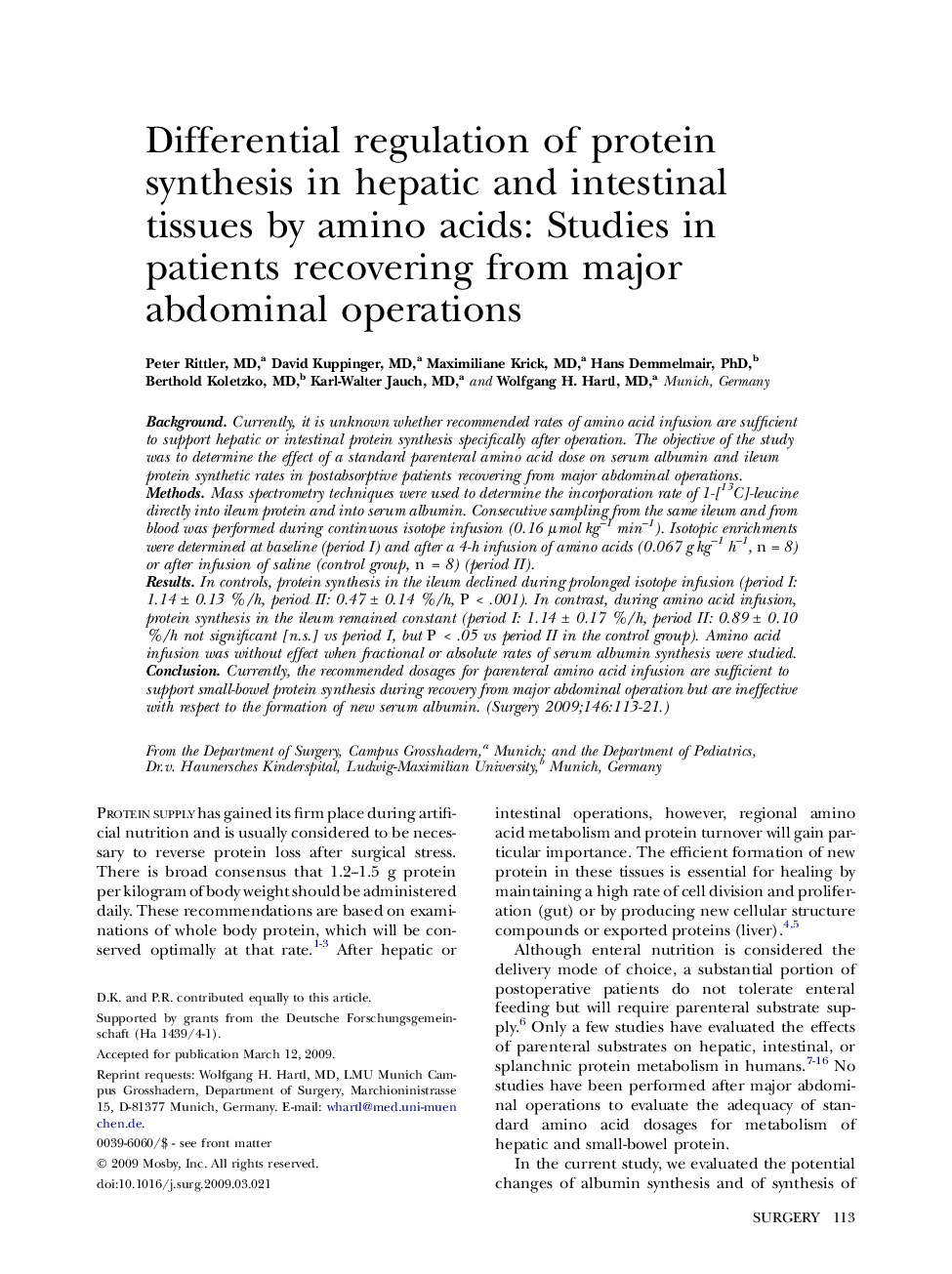| Article ID | Journal | Published Year | Pages | File Type |
|---|---|---|---|---|
| 4309550 | Surgery | 2009 | 9 Pages |
BackgroundCurrently, it is unknown whether recommended rates of amino acid infusion are sufficient to support hepatic or intestinal protein synthesis specifically after operation. The objective of the study was to determine the effect of a standard parenteral amino acid dose on serum albumin and ileum protein synthetic rates in postabsorptive patients recovering from major abdominal operations.MethodsMass spectrometry techniques were used to determine the incorporation rate of 1-[13C]-leucine directly into ileum protein and into serum albumin. Consecutive sampling from the same ileum and from blood was performed during continuous isotope infusion (0.16 μmol kg−1 min−1). Isotopic enrichments were determined at baseline (period I) and after a 4-h infusion of amino acids (0.067 g kg−1 h−1, n = 8) or after infusion of saline (control group, n = 8) (period II).ResultsIn controls, protein synthesis in the ileum declined during prolonged isotope infusion (period I: 1.14 ± 0.13 %/h, period II: 0.47 ± 0.14 %/h, P < .001). In contrast, during amino acid infusion, protein synthesis in the ileum remained constant (period I: 1.14 ± 0.17 %/h, period II: 0.89 ± 0.10 %/h not significant [n.s.] vs period I, but P < .05 vs period II in the control group). Amino acid infusion was without effect when fractional or absolute rates of serum albumin synthesis were studied.ConclusionCurrently, the recommended dosages for parenteral amino acid infusion are sufficient to support small-bowel protein synthesis during recovery from major abdominal operation but are ineffective with respect to the formation of new serum albumin.
